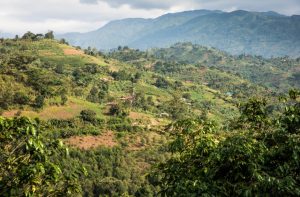
Coffee and Deforestation: Addressing Coffee’s Footprint
About one third of the world’s land, more than four billion hectares, is forest. Every year, this area decreases by an average of 13 million

About one third of the world’s land, more than four billion hectares, is forest. Every year, this area decreases by an average of 13 million
Big business says it’s leading the world to a sustainable future. But a new book says that’s a highly implausible claim. Transnational corporations, or TNCs,
Much news about the environment in 2017 focused on controversies over Trumpadministration actions, such as proposals to promote more use of coal and budget cuts at relevant federal
Poke, a dish made from raw tuna, is enjoying huge popularity far beyond its native Hawaii. But where is all that fish coming from? It
In order to address the harmful impacts of meat on human health and the environment, several different organizations have proposed that the U.S. government impose
Barnard unveils criteria it will use to evaluate whether a fossil fuel company is a good or bad actor worthy of its investment. An emphasis
Is sustainability sustainable in the Age of Trump? Mongabay.com–Apr 12, 2017 For one thing, many organizations have already publicly pledged allegiance to sustainable business practices while tying their brands
Texas hosts the largest Earth Day event in the world — Business Insider–Apr 25, 2017 Many, many brands attended to tout their sustainable business practices or environmental
An initiative that aims at using sustainable practices, Green Banao is … YourStory.com–16 hours ago Started as a mode to bring students and the sustainability industry … solution
The Bugle IKEA’s commitment to sustainability practices recognized for the 9th … Yahoo Finance–Apr 21, 2017 … in their organizations, incorporate sustainable business practices into their operations, and is